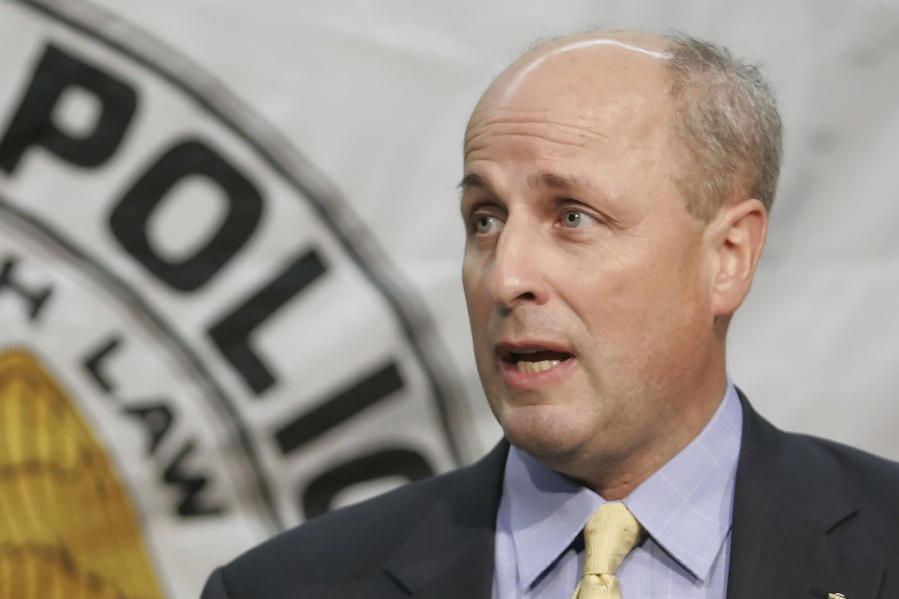WASHINGTON — An influential policing think tank is pushing law enforcement agencies to change how they handle body camera footage after police shootings, saying officers should not be able to review video before making their first statements to investigators.
The Police Executive Research Forum changed its position in a report released Friday, nearly 10 years after the group was first tapped by the Justice Department to write guidelines for agencies adopting body cameras.
The technology has swept the country’s police since. Now 79% of the country’s local police work in departments that use them. They’re in use in all cities of more than 1 million people, and Portland, Oregon, became the latest major city to adopt them in November.
“Having a body camera in your department is now expected,” said Chuck Wexler, the group’s executive director.
The technology has been key in cases like the death of Tyre Nichols, where body camera footage showed how he was brutally beaten by Memphis, Tennessee, police who are now facing criminal charges.
Still, research on whether body cameras reduce police use of force overall have been mixed. Half of studies reviewed by the group showed officers with cameras tend to use force less often, but the rest of the studies showed no difference.
Friday’s report, an advance copy of which was provided exclusively to The Associated Press, also said departments should have clear policies on the release of video footage to the public. Of the 127 agencies it reviewed, only 14% had specific policies for releasing body camera footage of critical incidents.
The adoption of body cameras by police departments around the country increased sharply during the national outpouring of protest after the 2014 death of Michael Brown at the hands of police in Ferguson, Missouri.
“There was a lot of faith put in body cameras as a silver bullet to some of the problems that many police departments have,” said Jay Stanley, a senior policy analyst at the American Civil Liberties Union. “But a lot of that promise has not been fulfilled,.”
Allowing officers to view body-camera footage before speaking to investigators can allow their stories to change to fit the video, either though lying or subconscious distortion of how they recall the event.
“Policies like this one undercut the oversight function that the tool is supposed to play,” Stanley said.
Agencies have already been moving away from allowing viewing footage ahead of time, and the new recommendation could hasten that process, Wexler said. The research forum is now recommending a hybrid approach where officers give an early interview before watching the video, then come back and give more information during investigations of shootings or other uses of force.
Lorie Fridell, professor emerita of criminology at University of South Florida, supports that approach. Memories are imperfect, but cameras don’t always capture every angle and nuance, either. “We have the officers’ perceptions and memories, which are fallible, and we have the body camera documentation, which is also fallible,” she said.
Kevin Davis, chief of Fairfax County police in Virginia, also sees virtue in taking officers’ statements before showing them the footage.
“For the sake of community trust and transparency, why not do it that way?” Davis asked.



